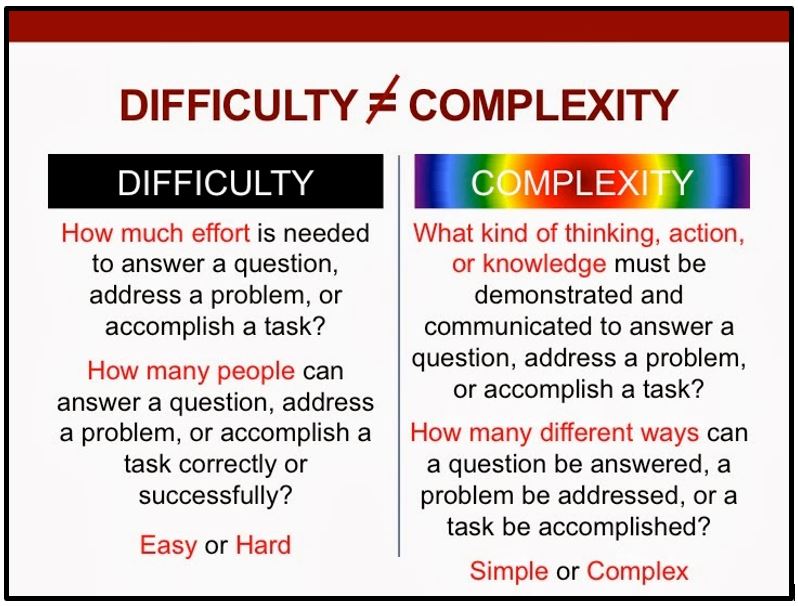 An excellent mathematics program includes a curriculum that develops important mathematics along coherent learning progressions and develops connections among areas of mathematical study and between mathematics and the real world. (PTA, 2014) With the adoption of rigorous standards, we must evaluate our student’s experiences with mathematics. Rigor is not assigning more problems ... it is not using more difficult numbers to make harder problems...it IS about making students think more deeply by increasing the complexity and cognitive demand. Increasing the Depth of Knowledge (DOK) required for a student means looking at mathematics through a different lens, promoting mathematical thinking rather than the final answer or result. We must understand that DOK is not about the difficulty of the objective, rather, it is about the intended outcome or the complexity of the mental processing that must occur in order to get to the intended outcome.
An excellent mathematics program includes a curriculum that develops important mathematics along coherent learning progressions and develops connections among areas of mathematical study and between mathematics and the real world. (PTA, 2014) With the adoption of rigorous standards, we must evaluate our student’s experiences with mathematics. Rigor is not assigning more problems ... it is not using more difficult numbers to make harder problems...it IS about making students think more deeply by increasing the complexity and cognitive demand. Increasing the Depth of Knowledge (DOK) required for a student means looking at mathematics through a different lens, promoting mathematical thinking rather than the final answer or result. We must understand that DOK is not about the difficulty of the objective, rather, it is about the intended outcome or the complexity of the mental processing that must occur in order to get to the intended outcome.
Consider the example of adding 4 + 4. This is a simple problem that students can routinely complete with ease. It is a DOK 1. Increasing the difficulty of the problem by asking a student to add 4,678 + 7,530 does not increase the complexity. To solve this problem requires a child to simply recall the sequence of steps. The level of cognitive difficulty is still a DOK 1. It is still recall. Knowing the rules of adding larger numbers - increasing the difficulty of the addition problem - does not affect the intended outcome. We still want the student to be able to add, just larger numbers.
While we still want the student to be able to add larger numbers, this cannot be where learning ends. Consider this progression of adding multi-digit numbers with regrouping:
DOK 1: Solve.
4,678 + 7,530 =
DOK 2: Use digits 0 to 9, at most one time each, to create two true number sentences.
DOK 3: Use digits 0 to 9, at most one time each, to create a true number sentence with the greatest possible sum.
In each example, students add multi-digit numbers; the standard is the same. Yet the cognitive demand and student thinking increases as the Depth of Knowledge increases as well. In order for educators to fully implement the 2017 Kansas Mathematics Standards with the intended rigor, we must consider how increasing Depth of Knowledge promotes student thinking.